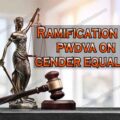
Family Courts have complete freedom to devise a fair procedure for the speedy resolution of disputes, the Court said.
In a significant decision, the Kerala High Court has issued a few observations regarding the foundational function of the Family Courts in India, while asserting that a Family Court is not the mirror of an ordinary Civil Court and that it is empowered with inquisitorial powers as well.
A Division Bench of Justice A. Muhamed Mustaque and Justice Sophy Thomas observed that the presiding officer of a Family Court was not expected to remain a neutral umpire while resolving disputes, but was empowered to find out the truth by utilising a fair approach.
“…no doubt judges of Family Courts have to be impartial or neutral, but proceedings or processes are not ordained to be away or aloof from making enquiry to find the truth of the real dispute.”
The petitioner-wife had moved the Family Court against her husband and his parents claiming for the realisation of patrimony and recovery of gold ornaments. Suspecting a collusive effort between the husband and wife against the husband’s parents, the Family Court ordered an enquiry through public officials to see if they were residing separately and if so, since when.
This suspicion arose after the in-laws of the petitioner contended so, alleging that the petition was filed to counter the action of the husband’s father, who revoked the settlement deed executed in favour of the husband. The petitioner approached the High Court challenging the order of the Family Court directing an enquiry
The question before the court was if Family Courts have to remain neutral umpire of the real dispute between the parties.
Upon a combined reading of Sections 9, 10 and 14 of the Family Courts Act, it was found that the Family Court is ‘not the mirror of an ordinary Civil Court’ and that it was specially entrusted with the following powers distinguishing it from an ordinary Civil Court:
(i) Adjudicative power following the rules of procedure as applicable under the adversarial system.
(ii) Proactive role for settlement of disputes between the parties.
(iii) Inquisitorial power to enquire into the truth of the matter.
Notably, Section 10(3) empowers Family Courts to lay down their own procedure to arrive at a settlement or to enquire into the truth of the facts alleged, which indicates that they are not bound by the strict procedure of law.
“In many of the matters like custody, maintenance, matrimonial status etc., the responsibility of the Court is to find out the truth. The focus of the enquiry is to be on the objectives to be secured rather than focusing on the subjective element of the dispute. The very purpose of entrusting family disputes to the Family Court from ordinary Civil Court is to focus not on the rights and obligations of the disputants but on the interest of the parties and welfare of the subject of the dispute.”
Therefore, the Court noted that while dealing with a dispute, the Family Court has complete freedom to devise a fair procedure for the speedy resolution of disputes. It was held that if the Family Court is able to adhere to fairness, its decision cannot be questioned before a higher Court.
Role of Presiding Officers
The Court then proceeded to analyse the role of the presiding officer in the Family Court. It observed that although some disputes before the Family Court may require following the rules of adversarial litigation, it does not restrict the Family Court from finding out the truth as in an inquisitorial model.
“To find out the truth, the Family Court does not require the consent of the parties. If fairness is reflected in any of the approaches, such an approach is clothed with legal protection.“
Further, the Bench laid down that although the focus of adjudication is on the parties and not on the disputes, Family Courts often forget this functional objective and continue to act as an adjudicator of a normal civil court. It was observed that this had resulted in a combative approach among litigants in all disputes before the Family Courts.
The judgment also noted that with the system proceeding as such, the very purpose of restricting challenge on the final order was lost since the Family Court was more engrossed in passing interim orders focusing on rights, obligations or disputes rather than focusing on the parties before them. Dissatisfaction with the administration of justice in the Family Courts is writ large on the face of many orders challenged before this Court,it was observed.
“The presiding officer remains a neutral umpire, watchfully eyeing on the rules and procedure, to give a verdict. The sad plight of the functioning of the Family Court, often, is portrayed before this Court by challenging the orders, invoking Article 227 of the Constitution.”
On these grounds, it was found that the Family Court was justified in passing an order to find out the truth through public officials.
“No prejudice will be caused if the real facts are brought before the Court. If it was a collusive effort, certainly it is a matter which requires consideration, before the conclusion of the proceedings.”
Therefore, finding no reason to interfere with the order of the Family Court, the Bench dismissed the petition.
Professional Assistance To Parties
Significantly, the Court recollected that the Family Courts Act also envisaged the establishment of organisations engaged in social welfare to assist the parties to protect the welfare of the family or to help the Family Court in arriving at an expedient and efficacious resolution of the disputes. The Bench noted that in most matrimonial disputes, assistance from professional doctors qualified in psychiatry, endocrinology, psychologists, etc. would resolve the disputes.
“Many of the disputes can be resolved by assisting parties to arrive at a mutually agreed settlement. Unidentified personality disorders, behavioural problems, hormonal imbalances may sometimes cause a rift in marital relationships. In the absence of medical expert’s assistance, the parties may not be in a position to identify their problems.”
The State has also framed Family Courts (Kerala) Additional Rules, 1990 in this regard, which contemplate the institutional forum of assistance through experts or professionals. The order noted that if the court renders assistance to rectify such problems, the parties themselves may choose to resolve the disputes. However, it was observed that these statutory provisions were not yet followed in the State.
The Registrar (District Judiciary) was therefore directed to file a report on the existence of professional assistance in Family Courts as mandated under the Family Courts Act and the Rules referred therein. The matter will be taken up on April 6.
Advocates D. Kishore Meera Gopinath and R. Muraleekrishnan appeared for the petitioner while Advocates M. V. Rajendran Nair and M.A. Zohra appeared for the respondents in the matter.
Source : https://www.livelaw.in/news-updates/family-courts-not-to-remain-a-neutral-umpire-can-order-enquiry-to-find-out-truth-kerala-high-court-195580





